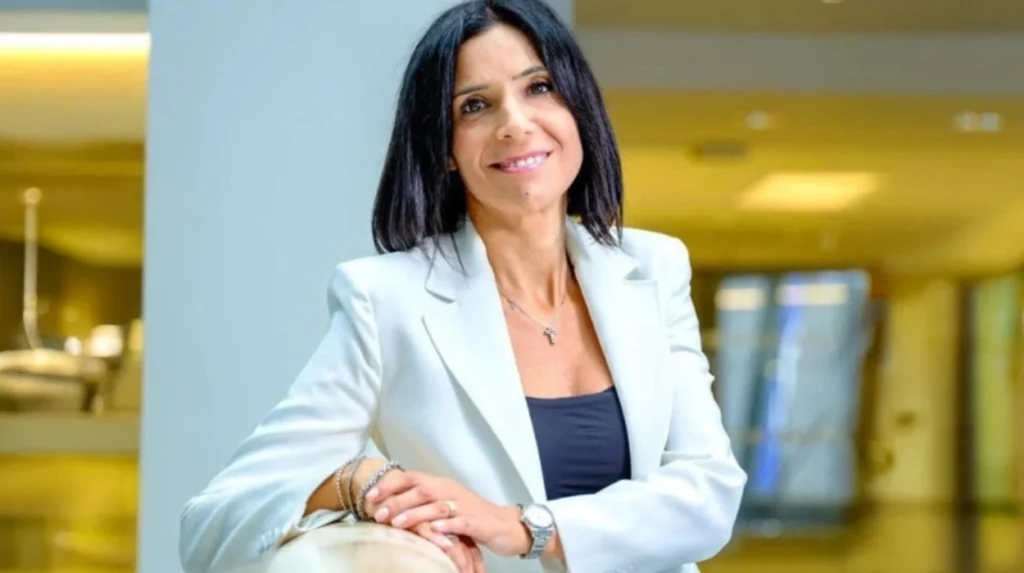The European Union’s relationship with Kazakhstan has marked a significant evolution over the past decade, characterized by growing political, economic, and cultural cooperation underpinned by shared values. Giuseppina Princi, the EU Ambassador to Kazakhstan, recently reflected on the depth of this partnership, emphasizing how mutual respect, democratic principles, and development goals have formed a robust foundation for collaboration.
Since formalizing their relationship ten years ago, Kazakhstan and the EU have expanded both the scope and substance of their cooperation. Giuseppina Princi highlighted that this partnership goes beyond mere diplomacy; it embraces common aspirations around governance, human rights, and sustainable development.
“The strong values that both Kazakhstan and the European Union uphold create a unique synergy, allowing us to address regional and global challenges effectively,”
Princi noted, articulating the essence of the relationship.
A Ten-Year Journey of Cooperation and Transformation
The partnership between Kazakhstan and the EU officially took shape with the signing of enhanced cooperation agreements, which set the stage for deeper engagement in political dialogue, trade, and investment. Over the past decade, the EU has become one of Kazakhstan’s key strategic partners, sharing expertise in reforms, environmental sustainability, and the rule of law.
Princi underscored the mutual benefits born from this cooperation, pointing out that
“Kazakhstan’s commitment to modernizing its institutions and fostering transparency aligns perfectly with EU standards and practices.”
This alignment has paved the way for joint projects that aim to boost economic diversification—especially crucial as Kazakhstan works to reduce its dependence on natural resources and nurture innovation-driven industries.
The EU’s technical assistance programs have played a vital role in supporting Kazakhstan’s reforms. Areas such as judiciary independence, anti-corruption mechanisms, and human rights protections have all witnessed progress with EU backing. Princi remarked that
“These achievements were possible thanks to Kazakhstan’s openness and the political will demonstrated by its leadership.”
Strengthening Economic and Trade Ties
Economic cooperation remains a cornerstone of the Kazakhstan-EU partnership. Over the years, trade volumes between Kazakhstan and EU member states have steadily increased, making the EU one of Kazakhstan’s largest trading partners. The EU’s appeal as a destination for foreign direct investment has also grown due to its regulatory framework and market stability.
Giuseppina Princi highlighted the importance of the Enhanced Partnership and Cooperation Agreement (EPCA) ratified recently, describing it as a comprehensive framework designed to facilitate trade, investment, and economic cooperation to new heights.
“The EPCA not only solidifies our economic cooperation but also encourages sustainable trade practices and technological exchange,”
she explained.
In addition, the EU has supported Kazakhstan’s green transition efforts, aligning with its Green Deal ambitions to curb emissions and promote renewable energy. Princi emphasized that
“Kazakhstan possesses great potential in renewable energy sources, and through our cooperation, we are advancing projects that contribute to climate goals and energy security.”
Shared Values and Regional Stability
For the EU and Kazakhstan, values such as respect for human rights, democracy, and rule of law form the backbone of their engagement. Princi pointed out that the two partners collaborate closely on governance reforms and civil society development, aiming to empower citizens and promote inclusiveness.
The EU’s support in areas such as judicial reform and enhancement of electoral processes reflects its commitment to fostering Kazakhstan’s democratic evolution. According to Princi,
“These reforms are crucial for Kazakhstan’s long-term stability and prosperity.”
Beyond domestic reforms, Kazakhstan and the EU cooperate on regional security challenges, including efforts to combat terrorism, organized crime, and trafficking. Kazakhstan’s strategic location as a bridge between Europe and Asia positions it as a pivotal player, and the EU’s partnership supports initiatives that contribute to wider Eurasian stability.
Looking Ahead: Partnership in a Changing Global Context
As the global landscape faces rising geopolitical tensions and economic uncertainties, the partnership between Kazakhstan and the EU is poised to deepen and adapt. Giuseppina Princi conveyed confidence that
“Our shared values and common goals will ensure that cooperation remains resilient and responsive to new challenges.”
One significant area for future collaboration involves technology and digital transformation. Both sides recognize the critical importance of innovation and digital infrastructure for economic growth and public services modernization. Princi noted that
“We are keen to expand partnerships in digital governance, cybersecurity, and smart city initiatives.”
Cultural exchange also continues to enhance mutual understanding and people-to-people connections. Through scholarship programs, joint research, and cultural events, the EU and Kazakhstan seek to nurture a deeper appreciation of their shared histories and complementary cultures.
The last decade has seen Kazakhstan and the European Union forge a dynamic and multifaceted partnership grounded in shared values and mutual interests. Giuseppina Princi’s reflections underscore the enduring commitment on both sides to strengthen political dialogue, support economic modernization, and promote regional security in a collaborative spirit. Looking forward, the partnership’s growth will likely be marked by innovative projects, increased trade, and continued efforts to uphold human rights and democratic governance.
“Our partnership with Kazakhstan is a shining example of how international cooperation based on strong values can bring tangible benefits to people and societies,”
Princi concluded, highlighting a future built on mutual respect and collaboration.







